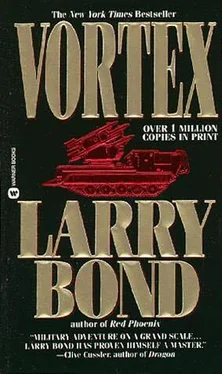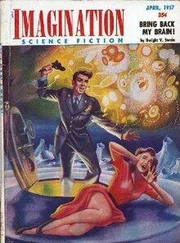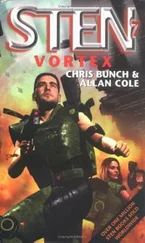“I
want those munitions moved to our forward units tonight. Tighten security, both on the ground and in the air. Clear?”
Suarez nodded.
“Good. Tomorrow, at dawn, we will use the weapons in preparatory bombardments against the enemy’s main line of resistance.” Vega pointed to a spot south of their position on National Route 1. “There.”
HEADQUARTERS, 1/75TH RANGERS, HUNTER ARMY AIRFIELD, GEORGIA
Frowning, Lt. Col. Robert O’Connell flipped from page to page of the war game after-action report. Board games and computer simulations couldn’t predict real-world battle results with total precision, but they were useful tools. Done right, they could highlight unexpected glitches or weaknesses in plans. Sometimes, they offered valuable insights into possible enemy counter moves Right now, though, he thought, the battalion’s simulations were just depressing.
So far, each of the three mock battles fought using the I/ 75this initial attack plan had ended in unmitigated American disaster. Casualties over 75 percent, no objectives seized, complete loss of command and control-the list of foul-ups went on for more than four pages. He shook his head in frustration. It was pretty clear that the battalion’s command
team would have to rethink drastically the Brave Fortune operations plan all the way from landing to extraction.
Someone knocked on the doorframe.
“Come. 11
Maj. Peter Klocek, the 1/75this operations officer, poked his head through the open doorway.
“I just got off the phone with Cheyenne
Mountain, Colonel. It’s for real. No media hype. They’re already using those nukes we’re supposed to grab. 11
“God.” O’Connell had been praying it was all a mistake ever since he’d heard the first panicked reports from South Africa.
“But I’m sure you’ll be glad to hear that the world community is up in arms over this.” Klocek didn’t hide his cynicism.
“I understand there are reports of protest notes, peace demonstrations, and threats of further unspecified sanctions rolling in from all over.”
“Great. Just great.” O’Connell scowled. Sanctions, demonstrations, and protests didn’t matter a damn now. Not when the Afrikaners had already shown they were prepared to wage total war-nuclear war. The only real way to stop Pretoria’s madmen would be to take the bombs away from them.
He glanced down at the reports littering his desk. At the moment, that scarcely seemed possible.
NOVEMBER 25-POTGIETERSRUS
The shattered remnants of several South African battalions held
Potgietersrus like a drowning man clinging to a rope.
The bush veld mining town wasn’t quite the last bastion before Pretoria itself, but there weren’t many such spots left along National Route
1.
With its mixture of excellent defensive terrain, a strategic road junction, and important economic assets, Potgietersrus was a good place to make a stand.
The city sat overlooking a dry, rocky plain, its offices and smelters and homes rising out of the ground like an island of civilization in the wilderness. In ordinary times, thirty thou sand people called Potgietersrus home-ten thousand of them white, fifteen thousand black, the rest mixed and other races.
Naturally, the whites lived in the center of town and ran the mines and businesses that kept the city alive. Their homes were mostly spacious, tree shaded, and expensive.
Many of the blacks in Potgietersrus were single men who lived in migrant-worker barracks adjacent to the mines themselves-one hundred men crammed into each long, one room building. They lived there while fulfilling year-long labor contracts. At the end of each year, they were free to visit families, wives, and children who’d been left behind in
South Africa’s tribal homelands-or even in Mozambique or Zimbabwe. They returned as soon as possible, though. The mines were usually the only work to be had.
Some lucky blacks, either mine workers or laborers elsewhere in town, managed to bring their families with them. They crowded into the same kind of squalid shantytown visible just outside every South African city.
Technically, blacks were not allowed to own land or even live near white-populated areas, but necessity drove them to settle wherever they could-existing as squatters for white convenience and at the government’s sufferance.
Applying the word township to Potgietersrus’s slum gave it a dignity it did not deserve. No water, no electricity, and no sewage system would ever serve the tin and wood shacks that were home to the bulk of the city’s labor force.
Potgietersrus was an important mining center-nickel, tin, copper, and platinum were all found in profitable quantities close by. The Cubans might say they were fighting to liberate their black brothers and end apartheid, but the mines would be their reward if they won. Capturing them would also immediately deny vital resources now flowing to Pretoria.
South Africa’s military mobilization had already reduced mine output by stripping away most white supervisors and craftsmen. Only a fraction of the explosives experts were black. Even fewer of the machinery operators were nonwhite. Black laborers were starting to fill those roles, but they had little training and even less guidance.
Much of the white population had fled Potgietersrus before the Cubans even reached the city’s outer defenses. Most blacks were still there. They had nowhere else to go. The mine workers were actually being held under guard in their barracks whenever they went off shift. Since so many were foreign workers, the Brandwag felt they were a security risk. Considering their treatment, that was probably right.
So mining operations continued, even with Cuban armor and infantry units less than thirty kilometers away. Huge trucks carried refined metals and other valuable ores south toward Pretoria. They moved without interference.
Vega had ordered his artillery and air commanders to avoid firing on the mines and smelters. Leaving them untouched would reduce the time needed to get them back into full swing once they were captured.
In any case, the Cubans had more than enough military targets for their artillery. Potgietersrus sat on the western slope of a rugged mountain more than two thousand meters high, and its defenders had been preparing a new defensive line for several days. There were no shortages of digging tools in a mining town.
The South African garrison contained several understrength infantry battalions, Air Force personnel who’d abandoned the base at Pietersburg, and men of the local commando-a sizable force, though one with little heavy equipment. Defeated farther north, they’d collected themselves in this town, all survivors of at least one battle and hasty withdrawal. This time, though, they were dug in on good ground. This time, they would hold.
HEADQUARTERS, POTGIETERSRUS DEFENSE FORCE
Brig. Piet Boerson had retired from the SADF years ago, but Vorster’s full mobilization had reactivated his commission and placed him in command-defending the town where he had lived for more than half his adult life. The tall, thin man’s face was craggy from a life of hard work. He hadn’t always sat behind a desk.
He’d been perfectly happy as a senior manager responsible for production in one of the area’s most successful copper mines. Now he fought to protect his home, his job, his way of life. Thank God, his wife and children were gone, though they’d only fled as far as her sister’s place in Pretoria. Well, if they didn’t stop the Cubans soon, there wouldn’t be anywhere that was safe.
Boerson stared at the map and sighed, taking another swig of lukewarm coffee. He should be grateful. Considering his country’s disastrous strategic situation, he’d been dealt a fairly strong hand. In the three days since the fall of Pietersburg, he and his men had fended off three separate Cuban assaults, and he was confident he could hold his ground for some time to come.
Читать дальше












